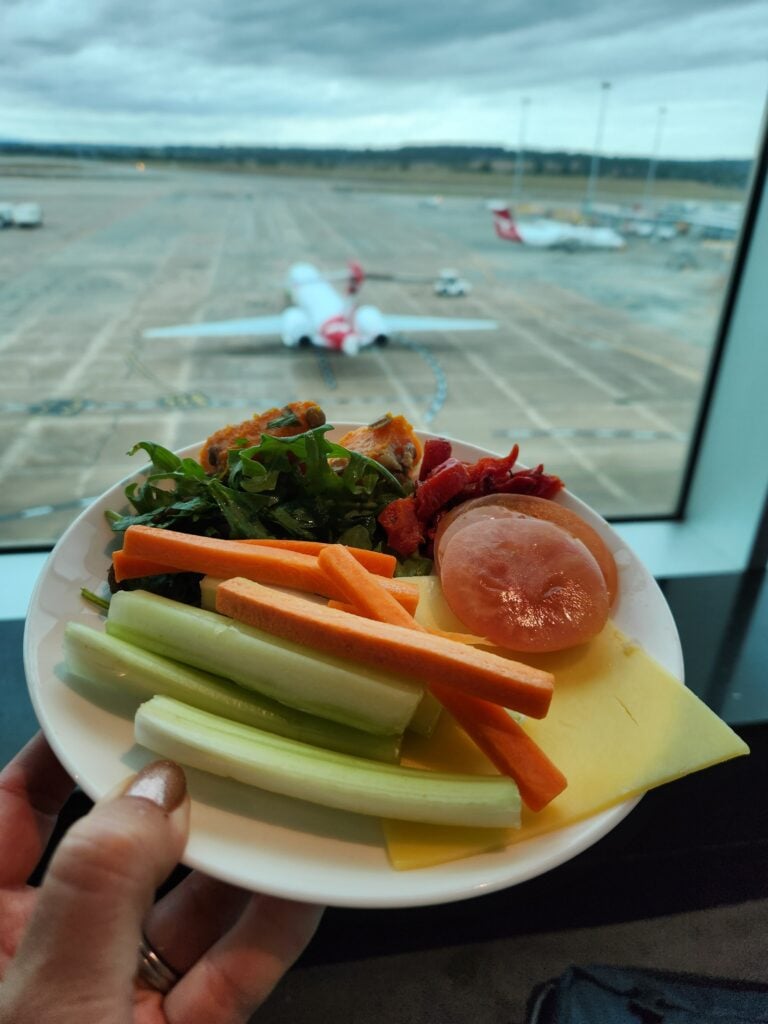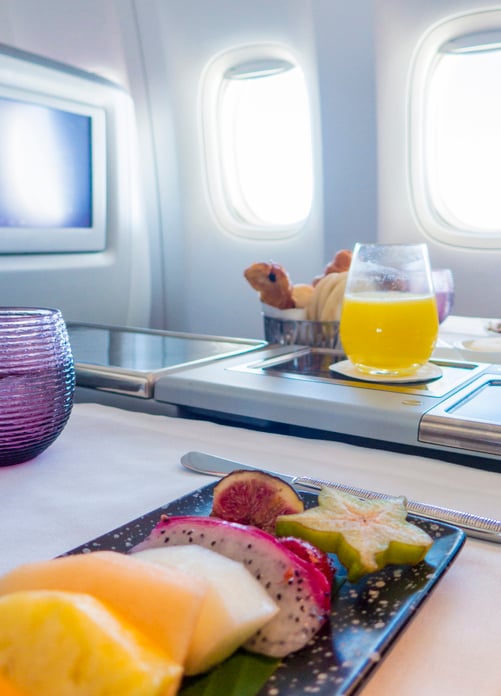When I tell people I specialise in travel nutrition (diet and travel), at first many people ask me “what is that”? And once I start to tell them I am usually met with a ‘wow that is so true’ or ‘oh of course, I never thought of all those different ways diet is important to consider when travelling’. There are so many areas where diet and nutrition are important to consider when travelling and specialist knowledge of travelling is essential to be able to provide useful and practical dietary recommendations.
But before I go into examples of these area more I wanted to address a very important point – I want to say what diet, nutrition and travel is NOT. It is not about imposing strict diets when travelling that take the joy of travel away. Eating delicious foods and exploring new foods and food cultures while away is an important part of travel and travel nutrition recognises this. Travel food and nutrition recommendations try to widen food choices while away and try and put the enjoyment back into food while travelling.
So lets explore more about travel nutrition and important considerations for diet and travel.


Diet and travel
Gut health
Flying can cause people to experience gastrointestinal issues such as bloating, abdominal pain, constipation and/or diarrhoea – it can be incredibly uncomfortable. When flying at high-altitudes it can cause gases in the gut to expand (think about how plastic water bottles can expand when flying). Dietary recommendations before, during and after flying can help people reduce or at least manage any gastrointestinal symptoms they experience. This is especially important in individuals with IBS or prone to bloating and constipation.
Hydration
If you have flown before, you probably noticed how dry your skin felt. This is because the air in aircraft cabins is quite dry and causes dehydration through increased water losses through the skin. It is important to prevent and manage dehydration while flying (even if you are only travelling on a short-haul flight) and so specific advice on types of drinks, electrolytes and how much fluid is useful.
Special diets such as food allergies, food intolerances and other dietary requirements
These days many people have specific dietary and nutrition requirements including people with food allergies, food intolerances and lifestyle dietary choices such as religious requirements or specific dietary patterns such as a vegan dietary pattern. This can make travelling difficult because not only can foods be unfamiliar in different countries, but also because there is not a lot of choice at times, especially when flying. Understanding the local food labelling laws, common foods found in different countries, and what foods are available when travelling (such as in the airport, on the plane, in local service/gas stations etc) is essential to ensure travel goes smoothly and without food anxiety.
Travelling with kids
Whether you are travelling with babies starting solids, toddlers who are picky eaters, or children with food allergies, being armed with knowledge and strategies can make travelling go more smoothly, be more enjoyable and less stressful. travelling with young children can be stressful enough without the added stress and anxiety around food on top. If families know in advance the types of meals served on planes, in airport lounges, food courts, hotels, supermarkets etc specific to different cities and countries then they can make decisions early about whether they need to take their own food or not.
Jet lag and diet
We now know it is important for health to consider when we eat foods, not just what and how much we eat thanks to exciting research into the science of chrononutrition (diet and circadian rhythms). When we eat food later in the evening, these are processed differently by the body as our circadian rhythms influence digestion and metabolism of food. Digestion is slower at night which may have effects such as bloating and other gastrointestinal issues, and our blood sugar levels can raise much higher after eating carbohydrates. This has implications for people awake at night, such as people travelling in the evening, people who are crossing timezones, and shift workers working in the travel industry. Dietary advice can assist with helping reduce risk of developing chronic diseases and may help reduce symptoms of jetlag and assist with our circadian rhythms realigning in new time zones.
Travelling while pregnant
Travelling when pregnant can be hard – and I know as I have done it. There are many foods that are recommended to be avoided when pregnant to reduce the risk of causing foodborne illness. Avoiding these foods difficult when travelling, especially flying, as food options can be limited. Not only are a lot of food choices out of women’s control, but they can also be ‘turned off’ many foods due to morning sickness, further restricting what they can eat. This makes eating a nutritious and varied diet for mother and baby difficult when travelling while pregnant. Recommendations specific to the mode of travel and locations can help increase enjoyment of travel through food.
Eating out
Eating out goes hand in hand with travel for many people. This means we can eat more discretionary and/or less nutritious foods than usual, or just generally eat more than we would at home. If you travel often, these changes in diet can really add up over time and may impact health. Diet and nutrition guidance to help balance eating out lots is important.
Chronic disease
People living with diabetes, cardiovascular disease, chronic inflammation etc benefit from dietary management in general, and this doesn’t stop when travelling. If you travel frequently and have a chronic disease, or are at risk of developing one, amending dietary strategies to reflect the travel plans of (such as foods available enroute and at the destination) help with organisation and decision making around foods and meals and can help people achieve their health goals.
For advice around any of these aspects of diet and travel please don’t hesitate to reach out and contact me. As a travel dietitian and nutritionist with a special interest in travel nutrition I have a passion for helping people with their diet and travel. I am also a frequent flyer and I review airport lounge food and plane food to help bring you as much information as I can so you can be prepared and make decisions right for your own travel circumstances.
If you are in need of travel medicine advice in Australia you could consider the Travel Vax and Travel Doctor clinics. I was delighted to be able to speak at one of their travel conferences and also outline the importance of diet and travel on their website.



